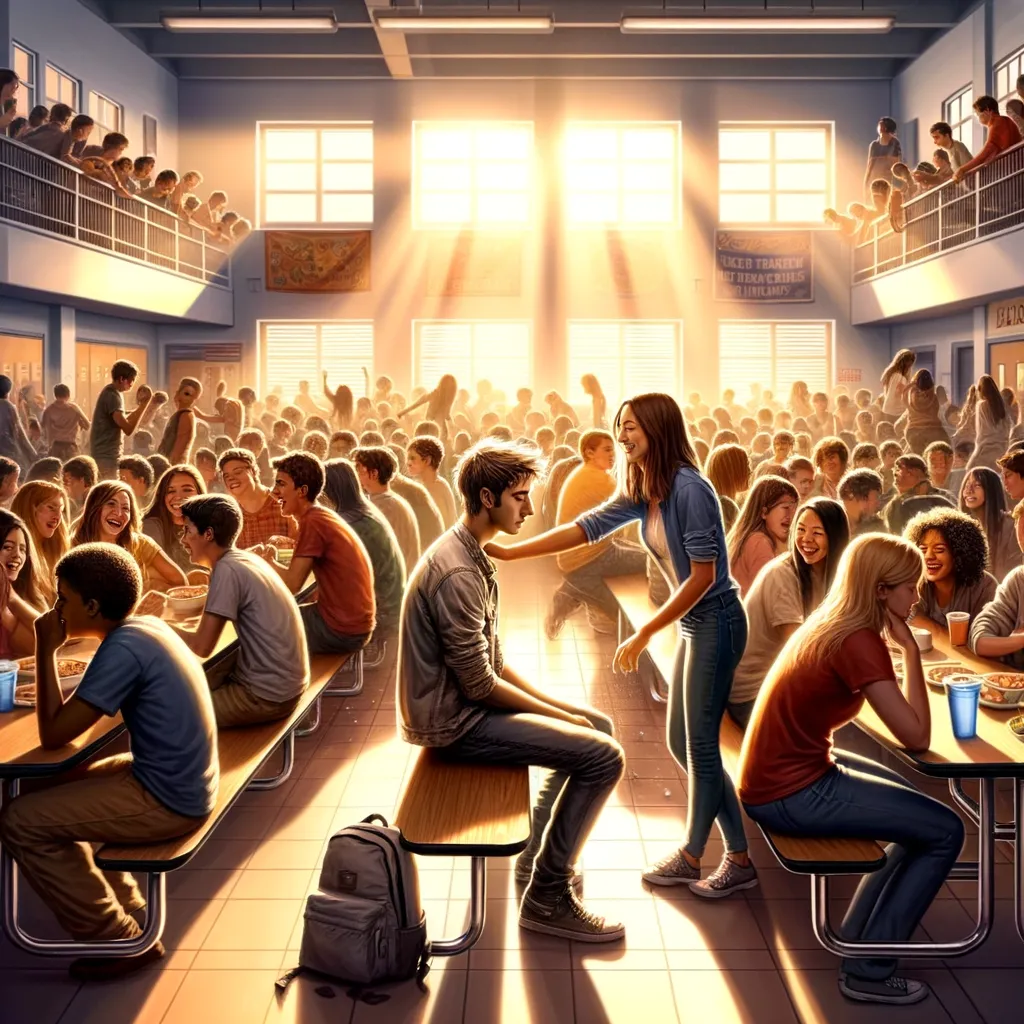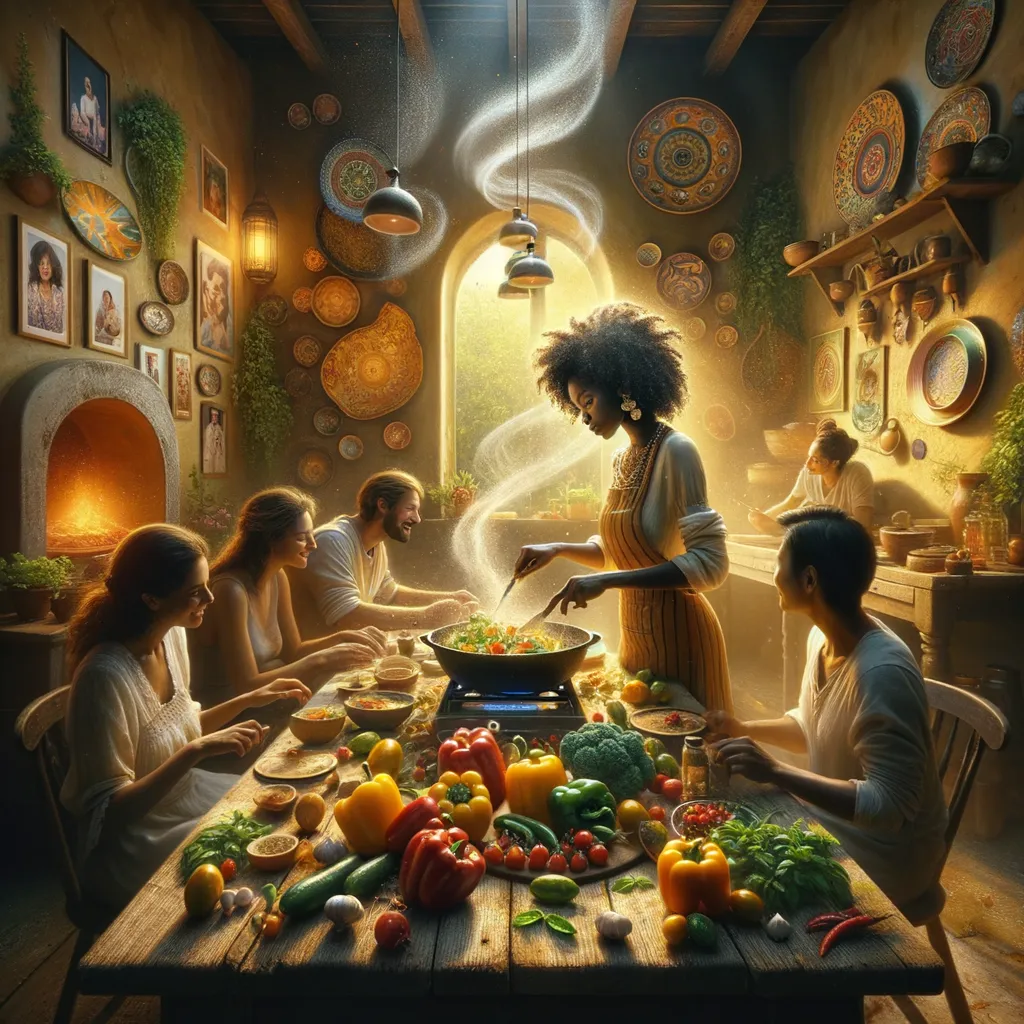A Brave Step: Discovering Strength in Unexpected Moments
On a seemingly ordinary winter day, the chill in the air masked the warmth of an unexpected awakening. As laughter echoed through the high school cafeteria, a boy sat alone, an unwitting target for the sharp-edged jests of his peers, casting a shadow of discomfort over the room. Yet, amidst the tide of mockery, a quiet courage began to stir within me, igniting a realization that passivity in the face of cruelty was a choice far more daunting than the risk of ridicule. With a steady voice and a genuine smile, I reached out to him, transforming a moment of isolation into an act of solidarity that rippled through the crowd, altering the dynamics of our social landscape. In that instance, I discovered that true bravery lies not in the absence of fear but in the willingness to embrace vulnerability for the sake of connection, forever changing the way I would navigate the complexities of humanity.
In the memory of January 28, 2000, I find myself standing at the edge of a moment that seemed so trivial yet held the weight of the world. The crisp winter air nipped at my cheeks, a stark contrast to the warmth of the sun that had peeked through the clouds. It was a day like any other at the high school where I spent my days navigating the maze of adolescence—awkward encounters, whispered secrets, and the constant pull of fitting in. Yet, on this day, the fabric of normalcy was about to unravel, and I was about to step into the unknown.
The cafeteria buzzed with the energy of youth, laughter spilling over like soda from a shaken can. In the corner sat a boy, his name lost in the sea of faces. He was different, not in the typical sense, but in a way that made the others uneasy. Perhaps it was the way he wore his heart on his sleeve, or the peculiar drawings that adorned his notebooks. Whatever the reason, he had become a target for the more popular crowd, their jests sharp as daggers, aimed with precision at his vulnerability.
As I sat with my friends, the chatter faded into a dull hum, and my gaze drifted toward him. I watched the shadows of mockery dance around his table, the laughter rising like smoke, enveloping him in a haze of isolation. A stirring began within me, an urge to intervene, but the fear of becoming a target myself held me captive. It was a familiar battle, one that many of us faced daily—self-preservation against the call to empathy.
Yet, as the taunts grew louder, a surge of courage ignited within me. It felt as if time paused, allowing clarity to pierce through the noise. In that instant, I realized that standing by while someone else suffered was a far greater risk than any potential ridicule I might face. With each step I took toward that boy, the world around me faded, and a new reality emerged—one where I could choose to be a beacon of support rather than a passive bystander.
The air thickened with tension as I approached, my heart racing in tandem with the pounding of my thoughts. I could feel the eyes of my peers on me, a mix of surprise and confusion swirling in their expressions. In that moment, I became acutely aware of the power of choice. I could continue to blend into the background, or I could stand up for what felt right. The decision crystallized, and I took a deep breath, ready to confront the tide of cruelty.
“Hey,” I said, my voice steady despite the tremor within. The laughter faltered, replaced by an uncertain silence. I turned to the boy, offering a genuine smile, an invitation to join my table. His eyes widened in surprise, reflecting a glimmer of hope. The shift was palpable, a ripple of change that spread through the cafeteria. In that instant, it was no longer just about him; it was about all of us, and the unspoken bond we shared as humans navigating the complexities of our teenage years.
What followed was a flurry of emotions, both daunting and liberating. Some friends rallied around me, while others recoiled, leaving behind a sense of isolation that could sting. I felt the weight of judgment, but it was overshadowed by a profound sense of rightness. The boy joined us, and together, we forged a moment that transcended the narrow confines of social hierarchies—a small act of solidarity that felt monumental in its impact.
Days turned into weeks, and the echoes of that day lingered. The boy became part of our circle, his laughter blending with ours, and the atmosphere shifted. The popular crowd found new targets, their taunts losing their sting as we stood together, a united front against the tide of indifference. I realized that courage was not the absence of fear but the decision to act despite it, a lesson etched in the annals of my memory.
Years later, as I reflect on that day, I understand that the act of standing up for another is an exploration of the self—a journey through the valleys of discomfort toward the peaks of connection. It is a reminder that the world is not merely a backdrop for our individual stories but a tapestry woven together by shared experiences, marked by moments of bravery that can alter the course of lives.
So, I ask you, in the face of injustice or vulnerability, what choice will you make when the opportunity to stand up arises?
In the delicate dance between self-preservation and empathy, true courage is found not in the absence of fear, but in the resolute choice to stand against the tide of indifference.



